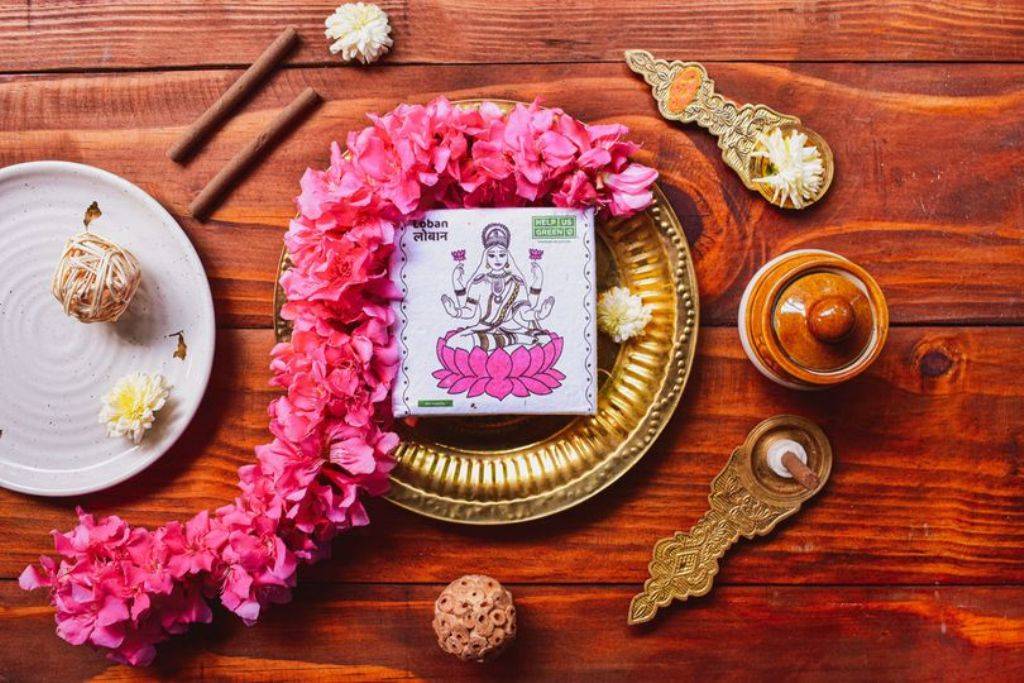
"When a flower doesn't bloom you fix the environment in which it grows, not the flower." We are in conversation with Karan Rastogi, a Masters from Warwick Business School (UK), who came back to India to join his family shoe-manufacturing business. Leaving an option of a stable career Karan along with his friend, he started Help US Green a segment of business which was actually untouched and unexplored. They spend some time researching an eco-friendly process of creating a product from the waste. And after a year of research, they launched Help Us Green which inturn launched a range of 100% handmade organic fertilizers (biofertilizers) and incense sticks that were made from the flower waste collected from the river. Help us Green has pioneered the ‘flowercycling’ technology to preserve the Rivers Ganges from becoming a religious sewer by up-cycling the monumental temple-waste in India. Karan in a one to one talk to Dr Lakshmi Unnithan ,Editor, Agriculture World explains the main inspiration behind it
The river Ganges has touched the lives of uncountable people in innumerable ways and earned the respect of Maa Ganga. But what is disheartening is to see people not only discharging the waste into the river but also polluting the river in the name of religious offerings say Karan. Devotees throw quintals of flowers and other religious items, in the name of offerings to Maa Ganga. More than 80,00,000 metric tons of flower waste is dumped into the holy river choking the aquatic life and causing turbulence in the entire ecosystem. Altering the religious sentiments of the people is not possible but we can definitely alter its repercussions on the society and environment. Karan always used to get worried seeing that the flowers find their way into a heap piled along the side of the temple. The heap was not just of flowers but a mixture of water, milk, sandalwood powder, hemp powder, small broken statues of gods and goddesses, pieces of cloth, pattals, plastic bags and many other things where free moving cows and goats kept searching for their food and littering around the temple making it a complete chaos.

This realization sowed the seed of Help Us Green says Karan Rastogi. Help Us Green was established in 2015 with a concept of making religion sustainable. It is now a self sustaining social enterprise that prevents the river Ganges from becoming a religious sewer by flower cycling the waste from the places of worship and converting them into lifestyle products with the help of 23 rural women. Everyday, HelpUsGreen collects more than 2.5 tons of flower waste from the places of worship in and around Kanpur and converts them into lifestyle products like organic fertilizers, aromatic sticks and colours.
With the pandemic delivering ongoing uncertainty, and climate change bringing ever more floods and droughts, it is imperative we take action to ensure farmers including the flower farmers s can quickly overcome challenging events. COVID- 19 has brought in losses to the tunes of Crore in floriculture Industry. The Estimated Losses in Floriculture in Uttarakhand alone was estimated to be “260cr”.The farmers in the floriculture sector in Uttarakhand were badly impacted due to the loss of demand for fresh flowers due to the shut down. The farmers have a large volume of crop that is in various stages of growth and will require alternate strategies to utilise this crop being a perishable commodity.
Cut Flowers like Roses , Gerbera , Carnation , Lilium , Gladiolus accounted to 176.75 cr and Loose Flowers like Marigold , & others are estimated to be 9.95 cr. Florist Shop Business to the tune of 15 crore was affected. Loss of Flowers stored in cold storage was estimated to be 20 cr and Flowers decorators loss was accounted to 23 cr. The whole reason behind these was none other than the pandemic. Flowers were the least wanted in such situations as the priority was good and clean food.

The Project “Sustainable Flowers” with the Government of Uttarakhand supported the affected farmer community in the wake of the shutdown due to the Covid Pandemic. The Dept. of Horticulture also helped in initiating this exercise that will go along way in helping the farming community in these testing times. The Uttarakhand Government and IFAD in association with the Village Story and partners like Help US Green have come up with alternate uses of the fresh flowers by converting these into a form (dried/powder etc.) that can be preserved for a longer time & can be utilised for products such as paper, agarbatti, natural dyes etc. They also collaborated with the Karnataka government where they provided online training sessions to the farmers so that they can learn more about sustainable farming and generate income out of it by developing final products such as incense sticks, dyes, herbal holi colours.
They have been constantly promoting zero waste and they also launched their seed paper packaging as it becomes impossible for devotees to throw away something featuring Gods. To help with the dilemma, they have also developed a new range of incense packaging that uses a seed paper made out of garment waste with tulsi seeds infused in it.
There are many flavours of aromatic sticks being brought out by Help us Green namely, Air, Water, Earth, Assam tea tree, Karnataka Sandal Wood etc. Each pack has 50 aromatic sticks and are Charcoal free, Made from flowers. There is a Stand inside and has a burning time of 30 mins burning time and has a Plastic-free packaging.
Before signing off what simple message would you like to give to the readers ?
Let’s start tackling one problem at a time and we should start thinking in what ways we can give back to our environment. Another simple message that I think says Karan we should seriously consider is Waste as the new Resource.










